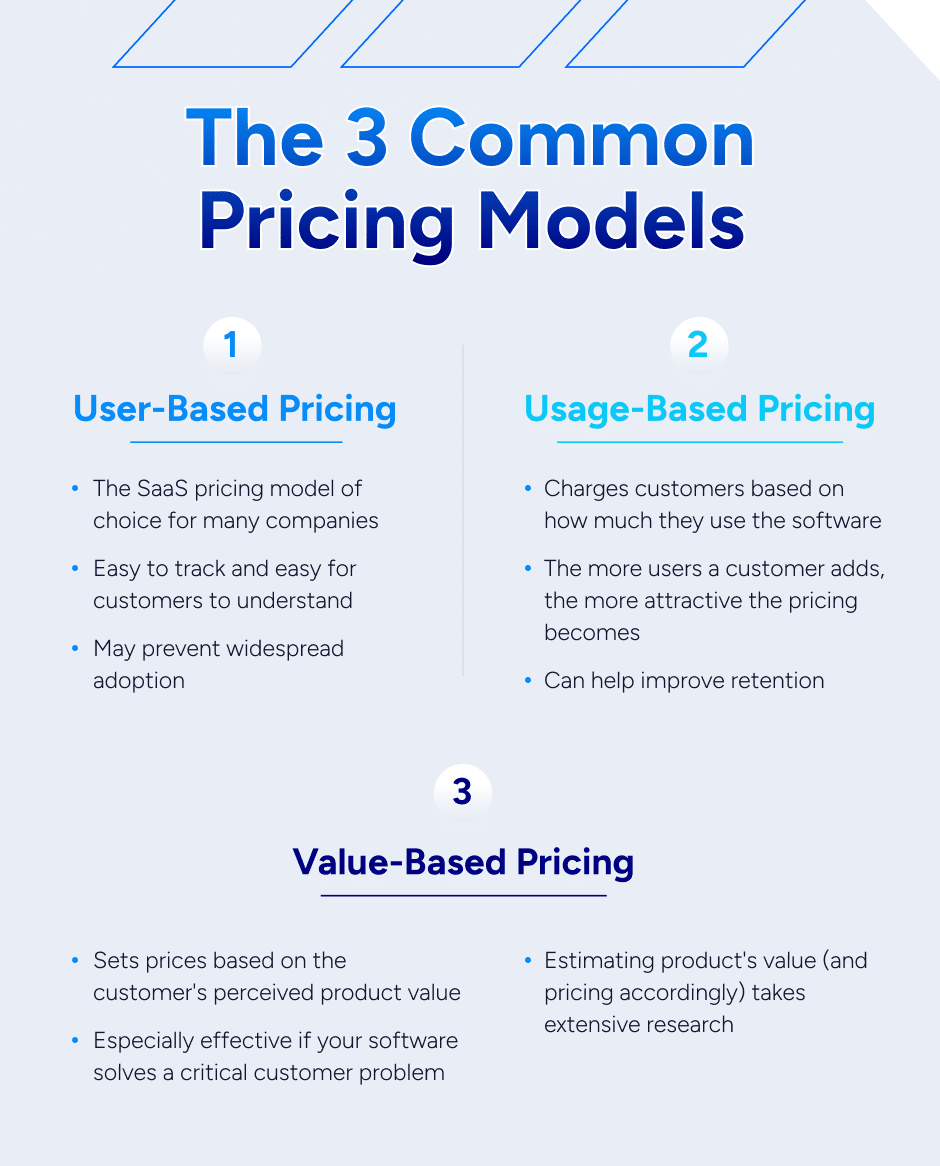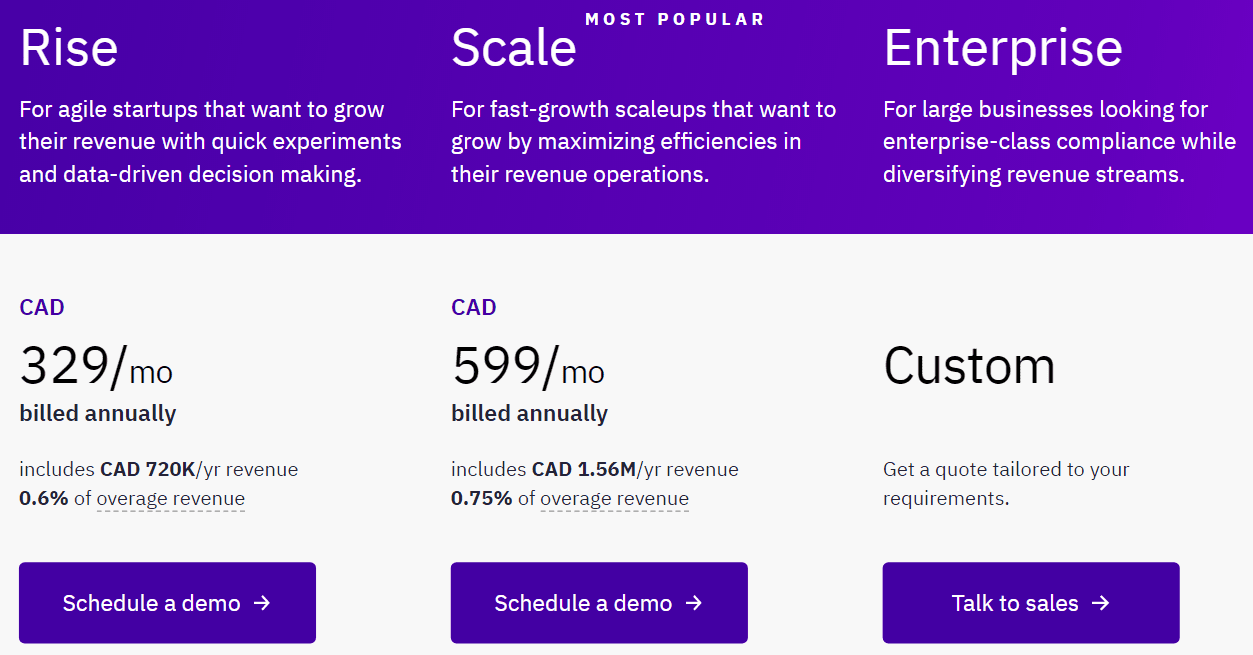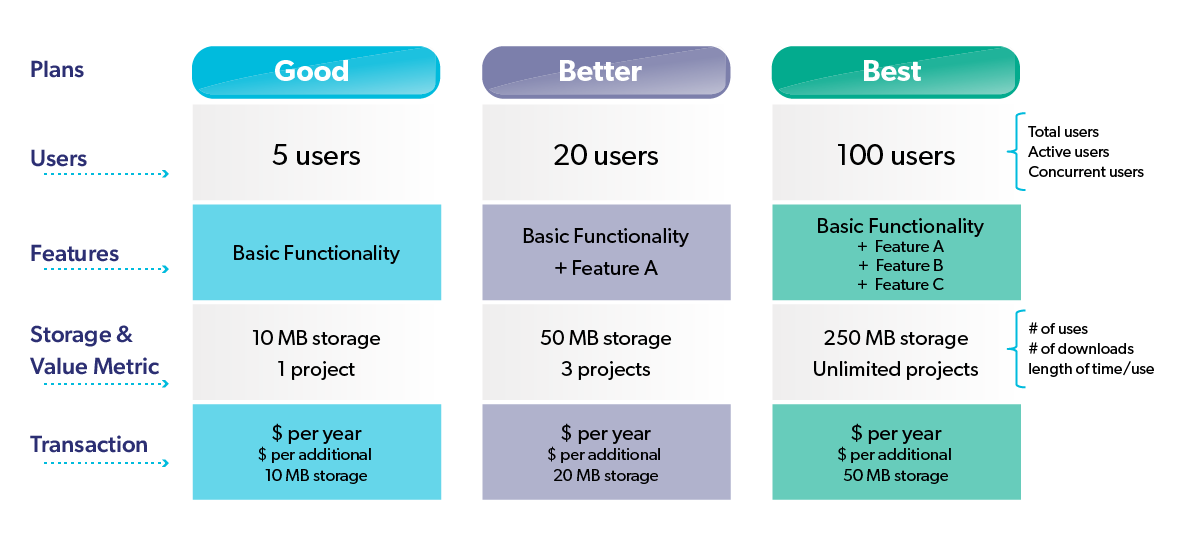Software companies commonly use several pricing models and strategies to maximize revenue, align with customer value, and stay competitive.
Key Pricing Models
-
Flat-Rate Pricing
A single product with a fixed price and set features. Simple but less flexible for diverse customer needs. -
Tiered Pricing
Multiple packages at different price points, each with varying features or usage limits. This appeals to different customer segments and allows upselling as customers grow. -
Usage-Based Pricing
Customers pay based on how much they use the software (e.g., API calls, data storage). This aligns cost with value but can be complex to manage. -
Subscription Pricing
Customers pay a recurring fee (monthly or yearly) for access. This is common in SaaS and provides predictable revenue. -
One-Time Payment
Customers pay once for perpetual access, less common in SaaS but used in some software products.
Core Pricing Strategies
-
Cost-Based Pricing
Price is set by adding a profit margin to the total cost of development, hosting, and support. Simple but may undervalue the product if customer willingness to pay is higher. -
Competitor-Based Pricing
Pricing is set relative to competitors, either matching, undercutting, or charging a premium based on features or brand reputation. Useful for market positioning but can limit profitability if over-relied on. -
Value-Based Pricing
Price is based on the perceived value and impact the software delivers to customers. This requires deep customer insight but can maximize revenue by aligning price with benefits.
Best Practices and Considerations
- Match pricing to customer expectations and market norms to avoid confusion or resistance.
- Keep pricing simple and easy to communicate for sales effectiveness and customer clarity.
- Consider hybrid models (e.g., subscription plus usage-based) to capture different revenue streams and customer needs.
- Test pricing models through A/B or pilot testing to find the optimal approach.
- Assign a dedicated team or person to continuously monitor and adjust pricing strategies as market conditions evolve.
Summary Table
| Pricing Model | Description | Pros | Cons |
|---|---|---|---|
| Flat-Rate | Single price, single feature set | Simple, easy to understand | Limited flexibility |
| Tiered | Multiple packages with varying features | Appeals to multiple customer types | Can confuse customers if too many tiers |
| Usage-Based | Pay per usage | Aligns cost with value | Complex to manage and predict revenue |
| Subscription | Recurring fee for access | Predictable revenue | May deter customers preferring one-time |
| One-Time Payment | Single payment for perpetual use | Simple for customers | Less recurring revenue |
| Pricing Strategy | Description | When to Use |
|---|---|---|
| Cost-Based | Price = cost + margin | When costs are stable and predictable |
| Competitor-Based | Price relative to competitors | To quickly gain market share or position |
| Value-Based | Price based on customer value | When product delivers clear, measurable benefits |
These models and strategies help software companies balance profitability, customer satisfaction, and competitive positioning effectively.




















Ang PH Ranking ay nag-aalok ng pinakamataas na kalidad ng mga serbisyo sa website traffic sa Pilipinas. Nagbibigay kami ng iba’t ibang uri ng serbisyo sa trapiko para sa aming mga kliyente, kabilang ang website traffic, desktop traffic, mobile traffic, Google traffic, search traffic, eCommerce traffic, YouTube traffic, at TikTok traffic. Ang aming website ay may 100% kasiyahan ng customer, kaya maaari kang bumili ng malaking dami ng SEO traffic online nang may kumpiyansa. Sa halagang 720 PHP bawat buwan, maaari mong agad pataasin ang trapiko sa website, pagandahin ang SEO performance, at pataasin ang iyong mga benta!
Nahihirapan bang pumili ng traffic package? Makipag-ugnayan sa amin, at tutulungan ka ng aming staff.
Libreng Konsultasyon